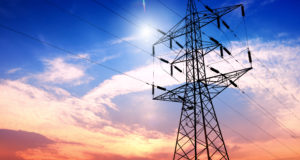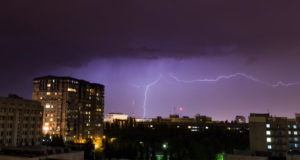 Power failures are so common across the aging American electrical gird that it’s a good idea to plan for their eventuality. Even if the duration of the power failure is short (as most are), there is an inconvenience factor with a power failure that could turn into somewhat more than just an irritant if the situation extends longer.
Power failures are so common across the aging American electrical gird that it’s a good idea to plan for their eventuality. Even if the duration of the power failure is short (as most are), there is an inconvenience factor with a power failure that could turn into somewhat more than just an irritant if the situation extends longer.
At some point, you need to start worrying about things like heat, refrigeration, and perhaps even power for medically essential devices like oxygen and dialysis machines. Mostly, the American people have embraced generators for this purpose. Big or small, fixed or portable, an internal combustion generator is a ready source of power for short periods – or even extended periods if you have the fuel to run it of course. Gas, propane or natural gas generators are workhorses that need relatively little maintenance and are easy to use. They do have some shortcomings, however:
- Internal combustion generators are relatively loud. With the exception of some compact footprint four stroke units, most generators are so loud as to be heard for miles. The noise isn’t just a nuisance; it is a tactical issue in that some undesirable people will readily hear your generator running from a distance and decide that perhaps you are better prepared than they are, and just maybe you need to share some of that preparation. Situations like these ones have played out many times right here in America, up to and including during Hurricane Katrina.
- For obvious reasons, generators can’t be positioned inside your home. Oftentimes, this means long extension cords that are subject to voltage drop as well as the need to keep a door or window partially open to run that cord into the house, which is a bigger problem than you think when it’s freezing cold outside.
- Generators need maintenance in the form of oil changes as well as all the other maintenance issues that are peculiar to internal combustion engines. Even if you have a generator that sits for a year without being used, you need to perform maintenance on to ensure it will start when you need it most.
An Amazing Breakthrough In Compact Portable Backup Power!
While the humble generator’s place is firmly cemented in the arsenal of the prepared citizen as an emergency power device, there is another gadget that bears looking at: the Power Pack. Marketed under a variety of different names, a power pack is nothing more than a large battery coupled with a built-in inverter and sometimes possessing a handful of AC wall plug style outlets, among other things. (Some even have USB ports.) The premise behind a power pack is simple: The DC battery within the unit puts out voltage which is converted into AC power by the onboard inverter, resulting in voltage that your household appliances can use. When not in use, the power pack is usually left charging from a wall jack so that it is good to go the second it’s needed.
Power packs are not a new invention, but they are rapidly gaining market share due to battery technology increasing to the point where a sealed battery can be small enough and powerful enough to be coupled with an inverter that is large enough to run household necessities. Sure, you could buy an inverter and a battery separately, but many of the power packs on the market today are well-engineered and absolutely idiot-proof. Just plug your devices in and go!
Power packs make lots of sense in an emergency, mainly because they are absolutely silent in operation, and can be used indoors, where the appliances you need to power normally happen to be located.
While a solar or internal combustion generator might be a better idea than a power pack for long-term power failures, a power pack is a better choice for events that last a day or less. Here are the ups and downs:
Pro:
- Power packs are totally silent.
- You can leave the unit inside your home since they do not give off fumes or carbon monoxide.
- Never needs maintenance.
- Unlike a solar generator, does not need sunlight.
- Unlike an internal combustion generator, does not need fuel.
Con:
- Large power packs approach the prices of medium-sized gas generators.
- Power packs have a finite lifespan in which they can deliver power. Once the internal battery is drained, they need to be recharged with a steady electrical source. Contrast this with a gas or solar generator.
- If you need to power something over 2000 watts for an extended period of time, you need to look at another technology.
Overall, power packs are a good addition to any survival tool box. They are not a perfect solution, but then, very little is during a survival situation. Still, they bear looking at for their sheer convenience during small- and medium-sized power failures.
Sign up for Off The Grid News’ weekly email and stay informed about the issues important to you
 Off The Grid News Better Ideas For Off The Grid Living
Off The Grid News Better Ideas For Off The Grid Living




